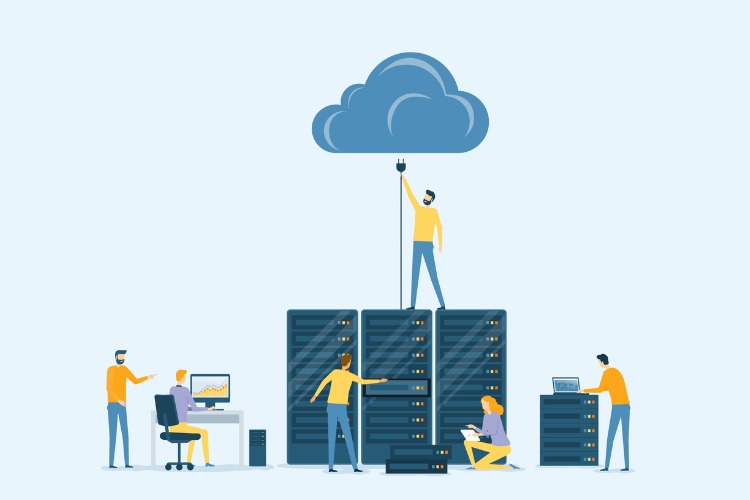Cloud Computing vs. In-House Servers (Pros and Cons)
What factors should you consider while selecting the correct server for your company? The most crucial choice is whether to employ cloud-based or on-premise server architecture. While it may appear to be a black-and-white decision, other factors are to consider.
First, you need to consider how critical uptime is to your company? After all, cloud hosting services might be more costly than an in-house server, but the advantages of being in the cloud exceed the expenses for specific firms. You can learn more about it on the 1&1 IONOS review, a specialist in cloud solutions.
Advantages and Disadvantages of Cloud Hosting
Cloud hosting is web hosting that uses cloud resources to provide access to sites and applications. It’s a network and server structure that divides a real server into many virtual servers using the software.
Allow this post to serve as a simple recommendation to assist you in choosing if you are a company looking at possibilities for your organization or someone intrigued about Cloud Hosting.
Pros:
- Keeps sensitive information safe. Your information is not accessible to anybody else.
- Allows you to take direct control over the backup.
- There’s no need to lean on Internet access for data access.
- Small and medium-sized businesses may find it more cost-effective.
Cons:
- Hardware and infrastructural investments are required.
- Besides professional IT assistance, a rack or server room/closet is required in your business.
- Because of its in-house location, it may be more vulnerable to data lost during disasters. The frequency with which you back up your data will determine how much data you’ll lose in a crisis.
- There are no promises about uptime or recovery time.
Advantages and Disadvantages of In-House Servers
As the name implies, an in-house server is kept and managed in your actual office space. As a result, you won’t need internet access to view your data. At all times, you have direct possession of your backup.
Pros:
- There are no onsite hardware or running expenditures required. This is a good alternative for small firms that may quickly outgrow their storage capacity.
- You can add extra capacity as needed. On-demand services are commonplace, so you only pay for what you need.
- You can back up and restore data from any computer, tablet, or phone.
- Data and information can be backed up to an external cloud in as little as fifteen minutes, lowering the chance of losing data in a disaster. The time it takes to retrieve tiny sets of data has been improved.
Cons:
- Data recovery costs may outweigh the benefits for businesses that aren’t as focused on uptime and speedy recovery.
- An organization’s cloud data storage capacity may be constrained due to space and expense constraints.
- If the cloud provider’s network goes down, you won’t be able to access any of your data.
- Entire data restoration could take some time and severely impact your systems. However, recovery may be accomplished in minutes when a Datto is used.
Conclusion - Which One Should You Get For Your Business?
As you’ve seen, each configuration has several advantages and disadvantages. Companies who do not wish to rely on the Internet may gain from getting some in-house server gear. At about the same time, organizations may profit from a cloud-based solution.
Whether you go with in-house or cloud is mainly determined by your company’s future goals, capabilities, and current operations. So, first, figure out what you want, and then select from those possibilities. If the choice is correct, it will not be a fail for you one way or another.

